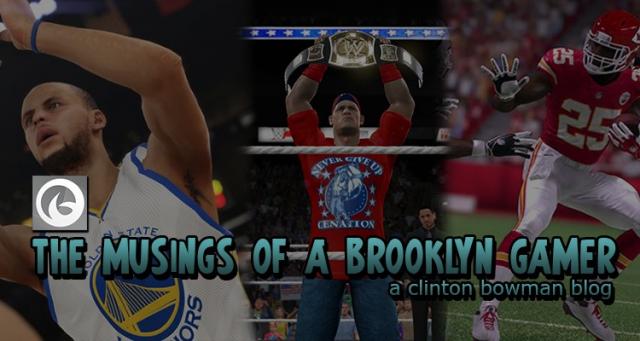CheckDisclaimer: The opinions stated below are those of the author and do not reflect the overall thoughts and feelings of The Outerhaven Productions.
I am a huge fan of sports games. However, as an avid sports gamer and with the current sports game season in full swing, I have to say that the sports game model is, for all intents and purposes, broken and outdated.
Now before you go completely apeshit on me and tell me that I don’t know what I’m talking about, hear me out.
Yearly sports games have been a thing ever since 1989, with the introduction of the of EA’s NBA Playoffs series of games. Classic titles such as Joe Montana’s Football and John Madden Football are only a sample of games that introduced us to sports games and opened the door to many other successful sports titles around the same time. Because of the media involved with making video games at the time, the yearly model worked…until 2005, with the introduction of the 7th generation of video game consoles and handhelds. That’s when it should have ended, right?
I get it. The main reason why the yearly sports game model still largely exists, is because of the multi-million dollar deals that are in place for these games to be released yearly, however, most of these games are generally the same from year to year, save for a few major updates every couple of years or so. EA UFC is the only sports game series that decided not to go for the yearly model, but instead to add new fighters and patches every so often until they were ready to release a new game. That can’t be said for every other game that is out there right now, save for Sony Santa Monica’s MLB The Show series.
Looking at the 4 major sports video games in America (and professional wrestling, if you want to add that,) these games capitalize from the yearly model. Small updates from year-to-year sate the appetites of the loyal, devout consumer, while the more knowledgeable gamer derides the incremental releases as money grabbing schemes from the publishers and leagues.
But what if there were a new model to take the place of the current? With the increasing sizes of storage space on consoles, as well as the ever decreasing cost of external expansion storage for consoles, patching and adding content is easier than ever, as well as quite cost-effective for the publishers, developers, licensees, and consumers.
Here are some ways that the model can change for the better:
Release a New Disc or Digital Download Every 2-3 Years
By releasing a new disc or digital download every few years, instead of yearly, it would offer more development hours into improving the game, thus making the game that much more valuable to the consumer, especially for games like WWE 2K, which can benefit from an extended release.
Proper Utilization of “Season Passes”
The Season Pass model, in theorem, works. It’s a phenomenal model. You pay a set amount for 6 months to a year’s worth of content, usually ranging from $15 – $30 dollars on top of the cost of the game itself. But what if it was truly a Season Pass? Let’s use the WWE 2K example again. Say you purchase WWE 2K16 this October for $60. 2K Sports can easily supply a $30 Season Pass that affords access to all updates, including new arenas, new Superstars and Divas, updated commentary from Michael Cole, JBL, Jerry Lawler, Byron Saxton and the NXT crew, new WWE Universe & MyCareer content, as well as the ever rotating color wheel that is John Cena’s wardrobe for one calendar year, and a new season pass has to be purchased to get future updates until the newest disc comes out.
Now apply that to Madden, or NBA 2K, or even NBA Live. New roster updates, jerseys, trades, draft classes, updated commentary relative to the time of year, etc., for a set cost every year a new disc doesn’t come out. It’s an easy money grab, since the split doesn’t include retail outfits like Best Buy, GameStop or Walmart on a regular basis, but is more geared towards a split between the leagues, Microsoft/Sony/Valve and the publishers, and makes the consumer want to spend their money, because they will be spending less money over a 2 or 3 year period of time, as opposed to spending around $80-100 every year on incremental increases and 3 – 6 month “season passes.”
Now, these two things are only a small inkling of what I have in mind for fixing the sports game model that is currently in existence, however, I’d love to hear your thoughts. Feel free to leave a comment below, or send a tweet @theouterhaven on Twitter.


